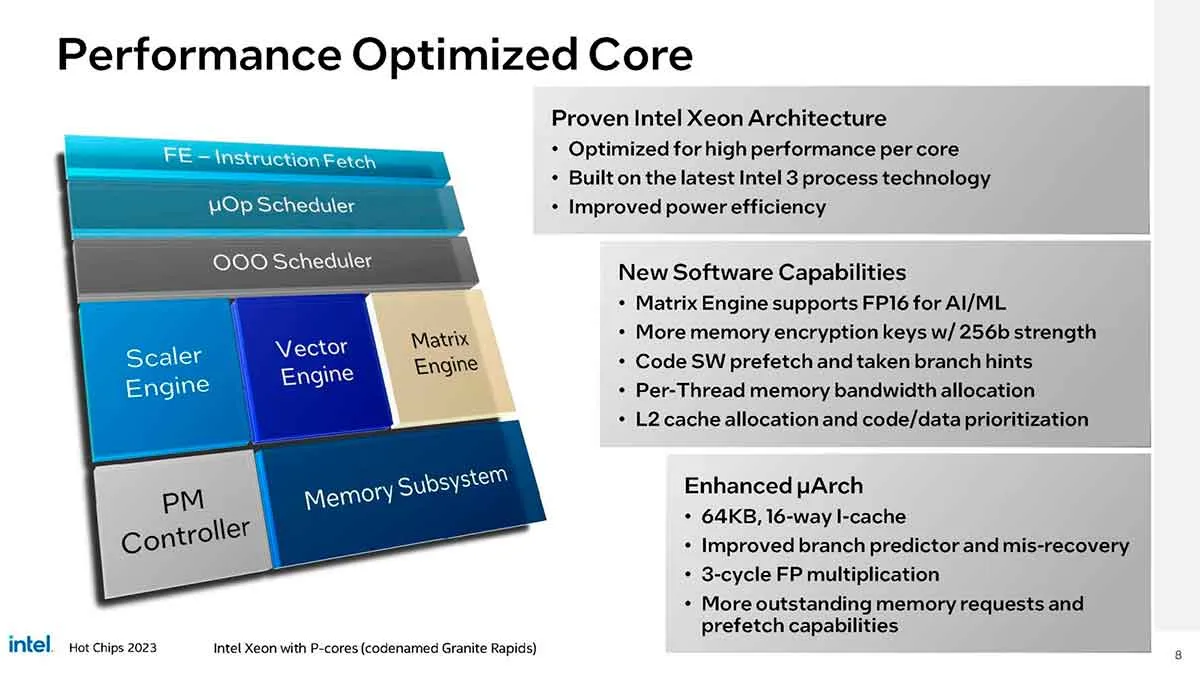Looking ahead, the Granite Rapids processors are expected to be based on P cores, utilizing Intel's 3 process technology in their chiplets. This change is projected to result in a 1.5x increase in L3 cache size compared to the Emerald Rapids series, according to data from Intel's SDE Software Development Emulator. Additionally, these processors are anticipated to include a 64 KB instruction cache per core.
This enhancement in cache size is a strategic move to bolster Intel's competitive stance against AMD's EPYC chips in the server market. The Granite Rapids generation represents a significant step in Intel's server segment, potentially marking one of its most notable advancements in recent years.
Increased L3 cache in processors typically brings multiple benefits:
- Reduced Latency: Faster access compared to main RAM leads to decreased wait times and quicker instruction processing.
- Improved Performance: Having more data and instructions near the processor allows for faster task execution, benefiting data-intensive and repetitive applications.
- Enhanced Multitasking: A larger cache aids in handling multiple processes or threads simultaneously, crucial in multitasking environments.
- Minimized Memory Bus Accesses: With more data stored in the cache, the frequency of RAM accesses is reduced, which can alleviate system traffic and enhance overall efficiency.
- Efficient Large Data Set Handling: Applications dealing with large databases or data sets, including servers and big data systems, stand to gain significantly from an increased cache size.
Reports suggest that the Granite Rapids processors will be a core component in server systems supporting up to eight sockets, catering to resource-intensive applications in AI and large data centers. In the broader context of the server CPU market, Intel faces stiff competition from AMD. Historically, Intel has led the market with its technological innovations and extensive product range. However, AMD's recent strides with its EPYC processor line – noted for its performance, efficiency, and scalability – have started to challenge Intel's market dominance. With the introduction of the Granite Rapids processors, Intel aims to reclaim its leading position and set a new benchmark in the industry. This rivalry between Intel and AMD is likely to spur a wave of innovation and technological growth, benefiting the server and data center sectors.
Source: Tomshardware


